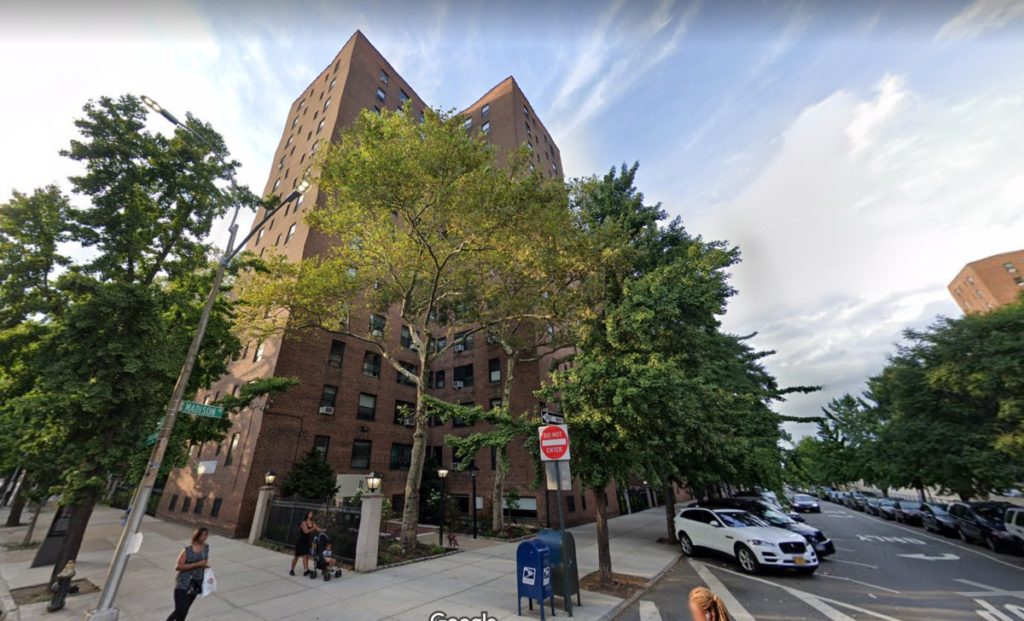How a villainized real estate industry struggled to respond to the Covid-19 eviction moratorium

Rent-regulated housing in New York City (Credit: Google)
Editor’s note: Please click here to join us Monday at 2 p.m. for a webinar discussion on how the multifamily sector is managing the impact of the coronavirus outbreak.
By Adam Pincus
On Friday, March 6, the mayor of San Jose, California, proposed a halt to evictions to protect vulnerable tenants during the Coronavirus outbreak. That afternoon, the state’s largest multifamily landlord trade group issued a statement supporting the move.
Meanwhile, almost a week later and 3,000 miles to the east, a media-savvy tenant-advocacy coalition launched an online petition calling for a halt to evictions and a rent freeze. The petition warned it needed the freeze “to halt widespread displacement,” implying that landlords — already vilified by elected officials and viewed with skepticism by the media — were certain to begin ousting non-paying tenants en masse. The group, Housing Justice for All, posted the petition to its Twitter feed on Wednesday March 11.
The petition immediately drew support from elected officials and the public and caught New York’s three large landlord groups flatfooted. The responses from the Real Estate Board of New York, the Rent Stabilization Association and the Community Housing Improvement Program, which have been licking their wounds and trying to understand the new political reality following the expansion of rent regulation last June, were not coordinated and have been skeptically received.
In fact, the three days from March 11 to March 13 highlighted the competing interests among them. Two people familiar with REBNY’s process to create its statement on March 13 said the statement was done essentially without consultation with RSA and CHIP.
REBNY and CHIP declined to comment. RSA did not respond to a request for comment. They have since worked together on responses to the crisis, including a recent letter to Governor Cuomo, sent March 18.
A source familiar with REBNY’s strategy said its president James Whelan was far more agile with a response than it may have been in the past. It came out in support of an eviction moratorium just two days after the Housing Justice petition. “What [Whelan] said was, ‘I’m doing what’s right,'” the source said. That said, the response was reactive, not proactive.
Why does that matter?
A strategic response to the coronavirus outbreak would take into consideration the cascading catastrophe the crisis is creating. The lack of money in the hands of renters is just one portion of the collapsing dominos. No money for renters is an immediate crisis for renters, yet is also means less money for landlords, and then less money for banks, which could lead the banks to be in violation of their cash reserve requirements. The problems are all of a whole. The trade groups are each essentially asking for this kind of comprehensive approach, but they have damaged credibility with the general public, as opposed to the housing advocates, empowered from their victories last year.
In fact, some elected officials, including State Senator Michael Gianaris, called for a 90-day period in which those who lose jobs because of the outbreak would not have to pay rent. Such a move would exacerbate the current situation by denying money to landlords. CHIP, for instance, is suggesting a voucher system to replace the money a tenant can’t pay, instead of simply stopping payments to landlords.
Had the industry and elected officials had a working relationship, they could have begun hashing out a response earlier this month. Instead the industry had to beat back an attempt by housing advocates to get a rent freeze and overcome yet another wave of bad public relations.
A recap of the political cycle of the eviction freeze story:
March 11: Housing Justice for All posts a petition online calling for a rent freeze and a halt to evictions.
March 11, 2:08 p.m.: Housing Justice for All posts the petition on Twitter.
March 11, 5:42 p.m.: The Real Deal publishes an article on the petition, and quotes CHIP’s executive director Jay Martin calling the housing advocates’ move, “craven political opportunism.” He was also quoted saying, “Preventing evictions is not solving the problem… There needs to be a collective and collaborative conversation — a moratorium is a temporary fix to a long-term problem.”
March 12: State Senator Julia Salazar tweets a letter signed by her colleagues calling for a moratorium on evictions.
March 12: CHIP releases a statement far softer than Jay Martin’s comments in The Real Deal. “We urge lawmakers to consider these dynamics before rushing to enact moratoriums. If they do choose to enact moratoriums, we hope they will include appropriate compensation to building owners to cover financial losses,” the statement concluded.
March 13, The Real Deal reports that the the state has enacted a one-week moratorium on evictions in New York City.
March 13: REBNY announces its voluntary 90-day moratorium on evictions by landlords representing 155,000 units.
“With all the stress, health risk and economic suffering going on now, no one should have to worry about losing their place to live during this crisis,” REBNY said in a statement.
March 15, 8 a.m.: The Real Deal reports tenant advocates call REBNY’s moratorium insincere. “Tenant advocates say the move by many of New York City’s top luxury and retail landlords is insincere and may stall efforts to enact a moratorium at the state level…Those firms, with few exceptions, are typically not the firms who process evictions in housing court,” the article reported.
[In fact, in 2019 PincusCo Media did an analysis of eviction filings in 2018, and found Related Companies, A&E Real Estate and Lefrak were among the most active filers. Although the story found the process was much more nuanced, and the firms that did much of the evictions were dedicated affordable housing owners like NYCHA, L+M Development, Atlantic Development, etc.]
March 18: REBNY, CHIP, RSA and others send a letter to the governor asking for a voucher program to help tenants pay rent, a property tax abatement, a 60-day extension on upcoming county and state tax bills, and other measures.
March 19: Gianaris calls for a suspension of rent payments by certain impacted New Yorkers.

